El Archaeological and Ethnographic Museum This morning, Soler Blasco de Xàbia hosted the presentation of a great archaeological find: 53 gold coins from Roman times. The treasure was hidden in a small crevice on the island of Portitxol.
The discovery took place a few weeks ago by two regular tourists from Xàbia while they were diving with the family. The discoverers, without being aware, at first of such important heritage, contacted the public administrations to inform and account for the discovery that becomes one of the largest sets of Roman gold coins found in Spain and in Europe.
Undoubtedly, one of the most exemplary and grateful attitudes on the part of all the authorities, "we have had two discoveries, that of heritage and some honorable people, who have managed to maintain, with total discretion, this important finding", said the Mayor of Xàbia, José Chulvi.
Chulvi has added that Xàbia claims itself as a "legitimate depository" of what it considers "a treasure of our historical legacy" and that it will fight so that this material and others of interest remain in Xàbia and become part of the permanent museum collections of the Soler Blasco. This added value, together with other projects such as the submerged museum in Portitxol, to position the municipality as a place of reference in underwater archeology, Chulvi has agreed.
Investigation project
With this new discovery, a new research project is opened in this territory of Xàbia of great archaeological and heritage value, such as l'Illa del Portitxol. The Department finances the first phase of the research project with more than 17.000 euros, as well as the conservation and maintenance of the coins found. This campaign of underwater archaeological excavations in the area of the discovery will be directed by the team that currently directs the general plan for underwater archeology research 'Archaeological prospects in Portitxol de Xàbia', in which both the University of Alicante and the Museum participate. of Jávea.
The project is led by the professor of Ancient History, Jaime Molina, and has the participation of researchers José Antonio Moya, Jordi Blázquez Martínez, Alejandro Pérez Prefasi, research professors of the University Institute of Archeology and Historical Heritage (INAPH) of the University of Alicante.
At the moment it is known that the coins "date between the fourth and fifth centuries", points out the archaeologist from Xàbia, Ximo Bolufer, who adds that the image of the coins correspond to the emperors Valentinian I, Valentinian II, Theodosius, Arcadius and Honorius. , "and from now on, it will be possible to better study the history of that time, the reason for the hiding of the coins, etc."
In the series of dives carried out, three nails have also appeared -probably made of copper- and some very deteriorated traces of lead that could belong to a chest.
The mayor of Xàbia, José Chulvi, the councilor for culture, was present at the presentation of the set of gold coins. Quico Moragues, the Vice-Rector for Research at the University of Alicante, Juan Mora Pastor, and the Colonel Chief of the Alicante GC, José Hernández Mosquera, as well as the protagonists themselves, César Gimeno and Luís Lens.
The Portitxol bay in Xàbia is an area well known for the abundance of underwater archaeological remains currently under study. In 2019, a joint research project between Town hall, Universitat y Generalitat which is still in force and which has brought to light anchors, shipments of amphoras, ceramic remains from different periods, metallic material, elements associated with ancient navigation, etc.
In fact, one of the archaeologists in charge of the project, José Antonio Moya, has defined it as "a history book that we are reading little by little and of which, fortunately, this page has not been lost."
How was the chance discovery
The protagonists of this beautiful and unforgettable story are Luís Lens and César Gimeno, lovers of the sea and Xàbia. As they have stated, the discovery of the coins "was accidental, totally fortuitous and an adventure that we will never forget."
A few weeks ago, specifically, on August 24, as they usually do every summer, they went to the sea with their family to spend a pleasant day and, at the same time, collect underwater garbage while diving. The surprise was to find these magnificent remains, "the dream of every little boy is to find a treasure, and we have done it," explained Lens and Gimeno.
But this finding was full of coincidences. First, Luis observed, inside a small hole, a bright reflection, but he did not care, thinking that it was a metallic residue and continued diving. Later, the flash was produced again, so he approached and believing that it was a current coin or a lost jewelery item, he took it and raised it to the surface where he verified that it was a historical element.
They found a total of 8 gold coins, which they took to the Xàbia City Council, which in the face of this exceptional find prompted a quick intervention of the team authorized by the Department with the archaeologists of the University of Alicante and the GEAS of the Guard Civil, and in collaboration with the Jávea City Council, to develop the archaeological project, finding 34 more coins, which in the face of the danger of looting are documented and collected to be deposited in the Archaeological Museum of Xàbia.
Later, and in a new intervention by the specialists, 11 new coins were collected, which brings to the 53 deposited in the Museum, which are in perfect condition. According to the dating, three coins correspond to the time of Emperor Valentinian I (363-375), 7 coins of Valentinian II (375-392), 15 coins of Theodosius I (379-395), 17 coins of Arcadian (383-408 ), 10 coins of Honorius (393-423) and an unidentified coin.
Recognition
The two divers have received, from the mayor of Xàbia, the title of the town as a sign of appreciation for their gesture for the site.

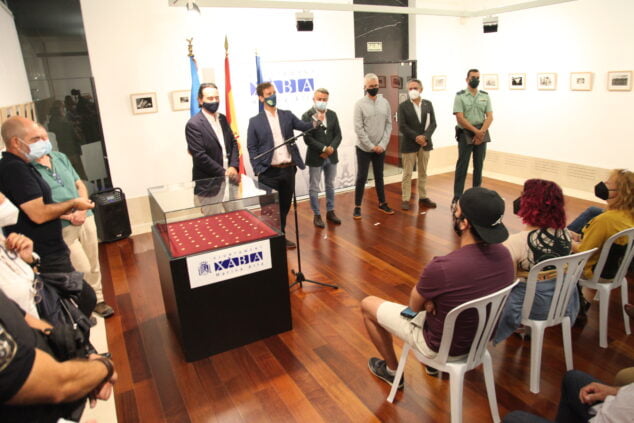
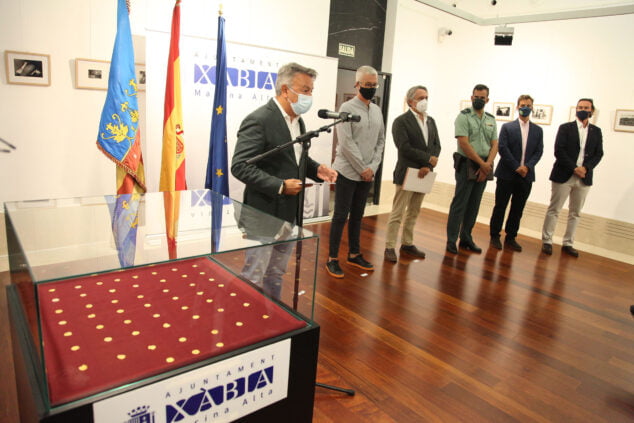
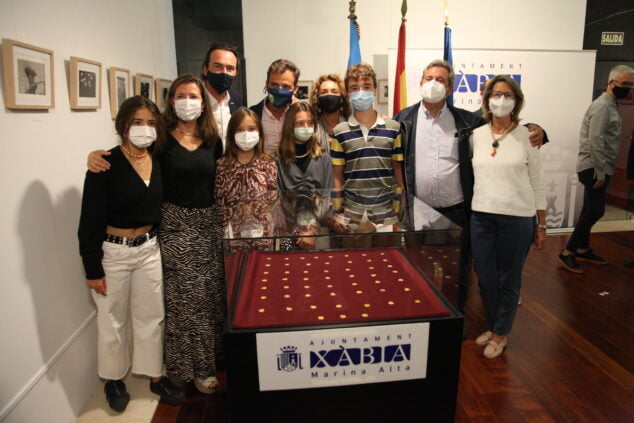

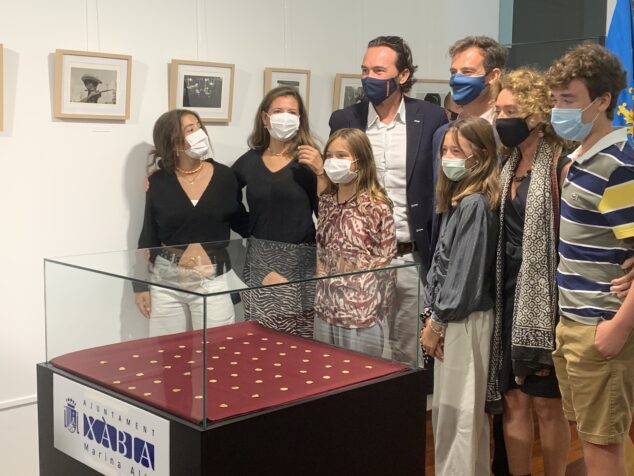
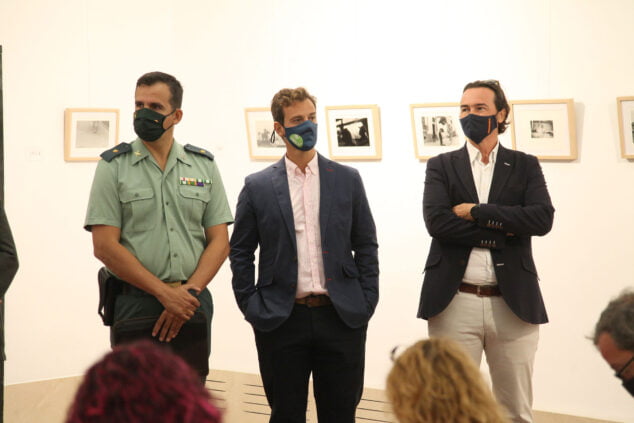


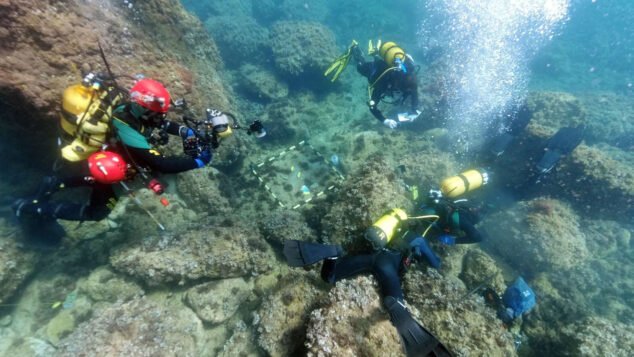
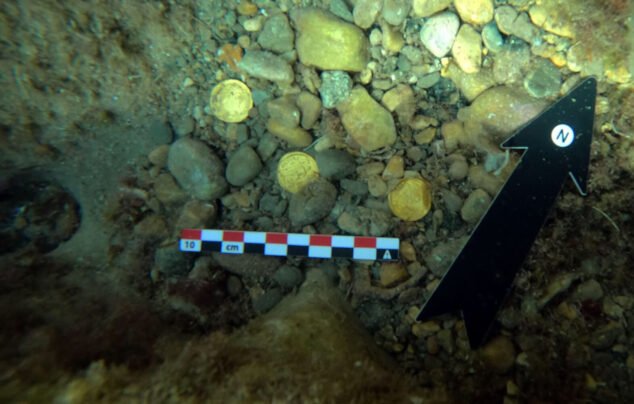
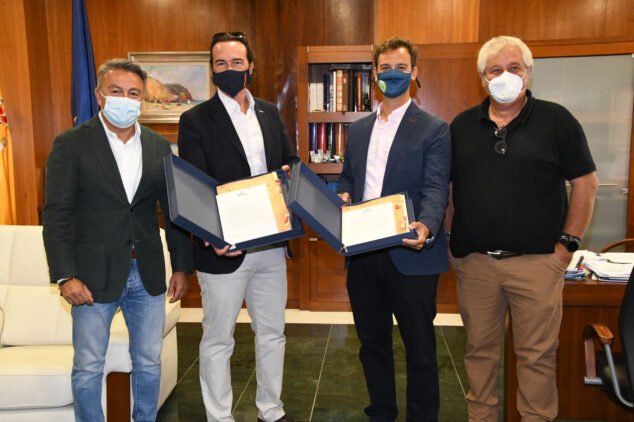
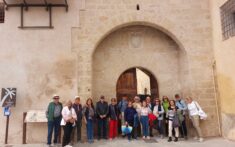
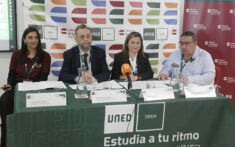
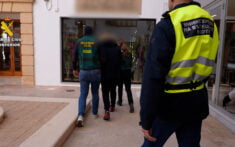
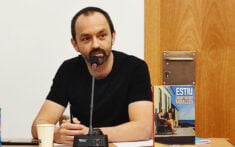
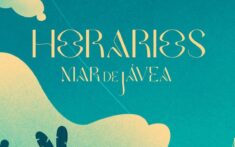
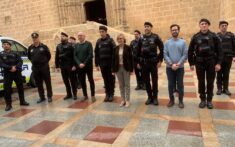
My most emotional congratulations to this family, so close to mine. It has been a great find that over time will gain importance, as well as the recognition of those who have achieved it. It has been fortunate that such honest and loving people from Jávea are the lucky ones.